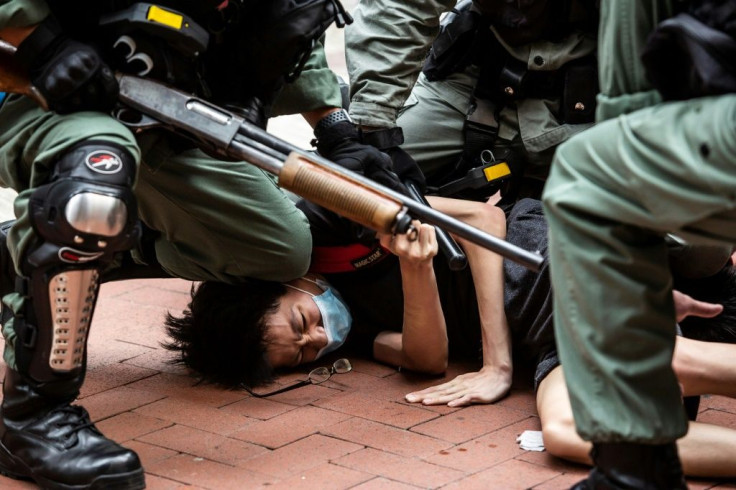Hong Kong Protests: Taiwan's Tsai Says New China Security Law Will 'Erode' Democracy

Taiwanese President Tsai Ing-wen has pledged her support to the people of Hong Kong as they face what could be their biggest hurdle in their fight for democracy against China.
China last week introduced a new national security law that will strengthen its hold on the special administrative region. The draft legislation is expected to further muzzle pro-democracy protesters as it targets activities that are "splitting the country, subverting state power,” Nikkei Asian Review noted.
The legislation, which will bypass the city’s legislature, has called recent events a challenge to the “one country, two systems” principle and has “threatened national sovereignty, security and development interests,” state-owned Xinhua noted. This has sparked a revival of Hong Kong protests over the weekend.
Following this news, the Taiwanese president said she believes the new law will “erode” the region’s democracy. In a post on Facebook, Tsai said she stands with the democratic camp.
“China is planning to bypass the Hong Kong legislature and formulate the so-called ‘Hong Kong version of the National Security Law’, which seriously threatens the future of Hong Kong,” Tsai wrote as translated via Google Translate.
“If the law is implemented, the core values of Hong Kong’s democratic freedom and judicial independence will be severely eroded.”
Tsai added that the answer to Hong Kongers’ call for freedom is “not bullets, not more fear and repression,” but a “commitment to a high degree of autonomy in Hong Kong.”
China, however, has viewed Tsai as a separatist. In a speech Friday, Chinese Premier Li Keqiang said Beijing “resolutely oppose and deter any separatist activities seeking ‘Taiwan independence.’”
“We will encourage them ( our fellow compatriots in Taiwan) to join us in opposing ‘Taiwan independence’ and promoting China's reunification,” Li said.





















